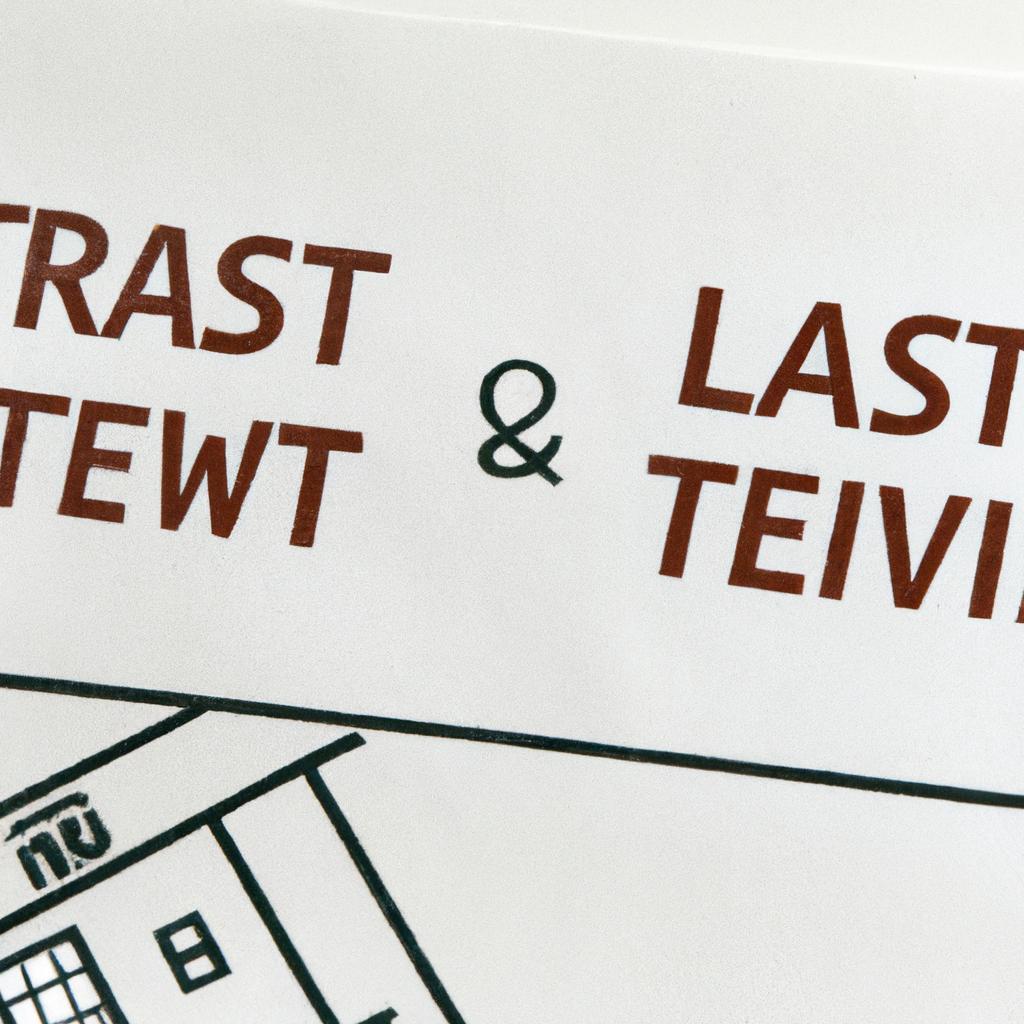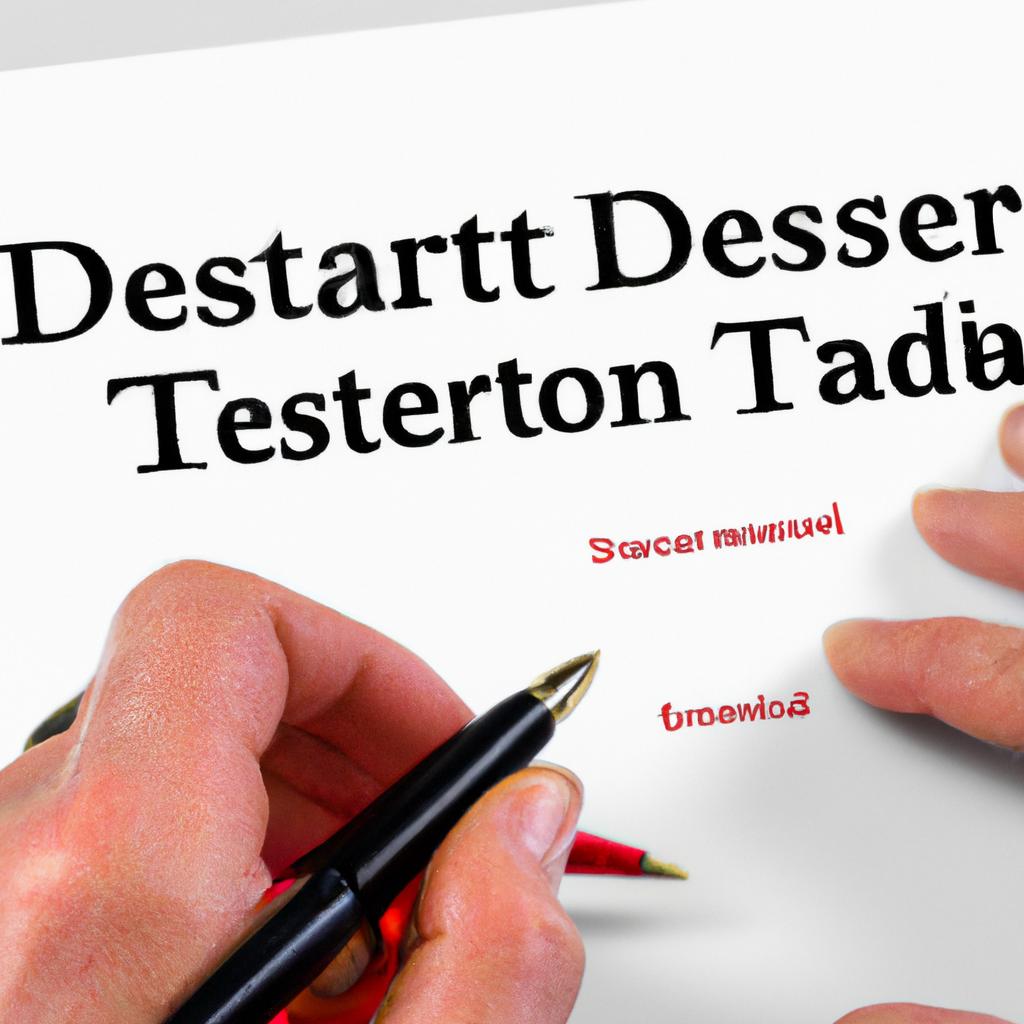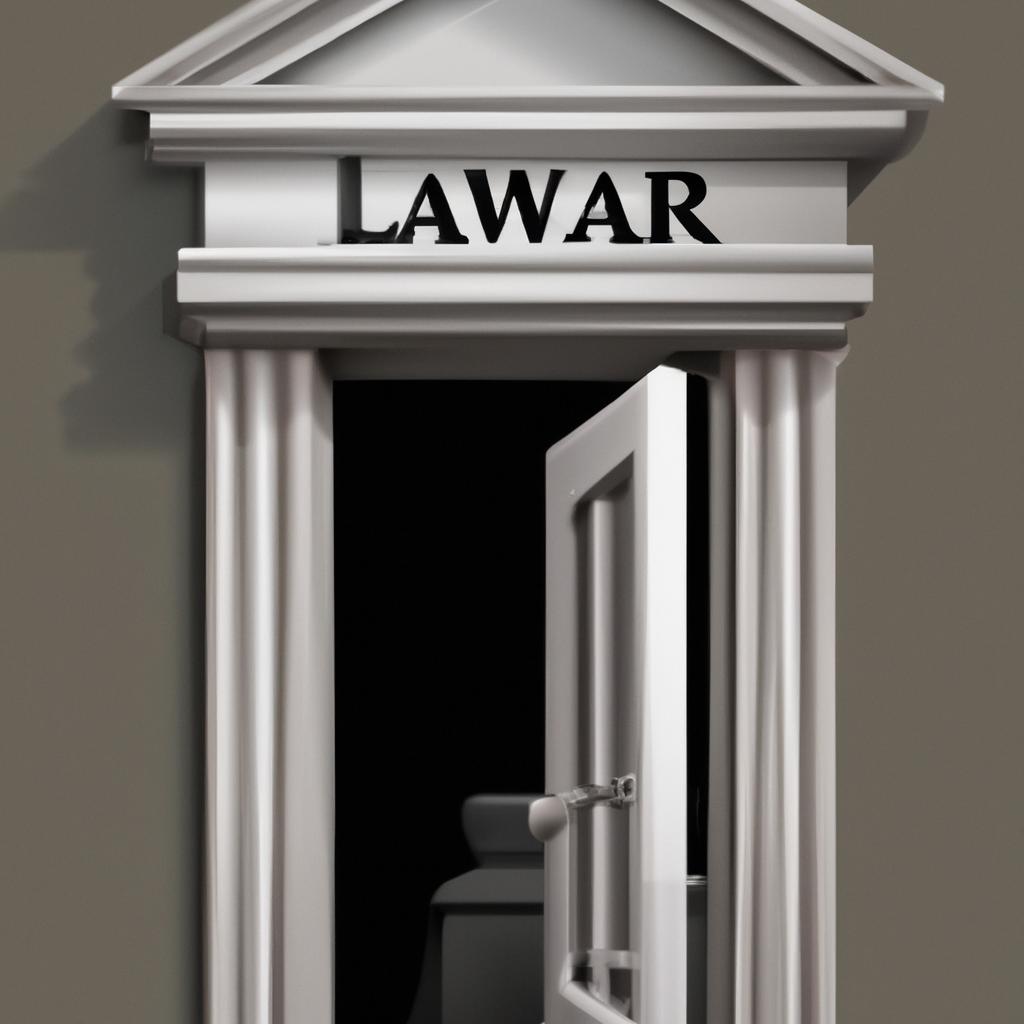Probate, a process often associated with lengthy delays and high costs, can be a significant concern for individuals when planning their estates. As an experienced attorney in estate planning, I have frequently encountered clients seeking ways to avoid probate altogether. In this article, we will explore the various types of ownership that can help circumvent the probate process, allowing for a smoother transition of assets to beneficiaries. Whether it be joint tenancy, living trusts, or other forms of ownership, understanding the nuances of each can be essential in creating a comprehensive estate plan. Let us delve into the intricacies of estate planning and discover which type of ownership would best suit your needs in steering clear of the probate maze.
Determining the Optimal Ownership Structure for Probate Avoidance
When it comes to avoiding probate, choosing the right ownership structure is crucial. Different types of ownership offer varying levels of protection against probate, ensuring that your assets are passed on smoothly to your loved ones. To determine the optimal ownership structure for probate avoidance, it is essential to consider the following key factors:
- Title of Ownership: The way in which you hold title to assets can impact whether or not they go through probate. Options such as joint tenancy, tenancy by the entirety, or community property with right of survivorship can help bypass probate entirely.
- Beneficiary Designations: Naming beneficiaries on assets such as retirement accounts, life insurance policies, and payable-on-death accounts can help these assets avoid probate and pass directly to your chosen beneficiaries upon your death.
- Trusts: Creating a trust can provide a comprehensive probate avoidance strategy, allowing your assets to bypass probate and be distributed according to your wishes without the need for court intervention.

Comparing Joint Tenancy and Living Trusts for Estate Planning
When considering estate planning options to avoid probate, it is important to weigh the benefits and drawbacks of joint tenancy and living trusts. Both options offer different advantages depending on your specific circumstances and goals.
**Joint Tenancy:**
-
Ownership shared with co-owner(s)
-
Automatically transfers to surviving co-owner(s) upon death
-
Can be a simpler option for married couples
**Living Trusts:**
-
Allows for more control over how assets are distributed
-
Provides privacy as the trust document is not public record
-
Can help avoid potential disputes among beneficiaries

Understanding the Benefits of Transfer-on-Death Deeds
When it comes to avoiding probate, one of the most effective tools available is a Transfer-on-Death Deed. This type of deed allows property owners to transfer real estate to designated beneficiaries upon their death, without the need for probate court involvement. By utilizing a Transfer-on-Death Deed, individuals can ensure that their property passes directly to their chosen heirs, saving time and money in the probate process.
One of the key benefits of Transfer-on-Death Deeds is that they provide a straightforward and efficient way to transfer real estate assets outside of the probate process. This can help to expedite the distribution of assets to heirs and avoid the delays and costs associated with probate court. Additionally, Transfer-on-Death Deeds offer privacy, as they do not become public record until the owner’s death, unlike traditional wills which are subject to probate court scrutiny. Overall, Transfer-on-Death Deeds are a powerful estate planning tool that can help individuals effectively transfer real estate assets to their loved ones.

Recommendations for Effective Probate Avoidance Strategies
When it comes to effective probate avoidance strategies, one of the best options is to consider different types of ownership. By choosing the right type of ownership for your assets, you can ensure that they pass directly to your beneficiaries without the need for probate. Some types of ownership that can help you avoid probate include:
- Joint Tenancy: Holding property in joint tenancy with right of survivorship means that when one owner passes away, their share automatically goes to the surviving owner(s).
- Tenancy by the Entirety: This type of ownership is typically only available to married couples and offers similar benefits as joint tenancy, with the added protection of creditor protection for marital debts.
Q&A
Q: What type of ownership would best avoid probate?
A: Joint tenancy with right of survivorship is a type of ownership that can help avoid probate.Key Takeaways
In conclusion, choosing the right type of ownership for your assets is crucial in avoiding probate and ensuring a smooth transfer of assets to your loved ones. By considering options such as joint tenancy with right of survivorship, revocable living trusts, or payable-on-death accounts, you can take proactive steps to protect your assets and streamline the estate distribution process. Remember to consult with legal and financial professionals to tailor a plan that best suits your individual needs and circumstances. With proper planning, you can secure a legacy for your heirs and minimize the hassles of probate. So, take the necessary steps today to safeguard your assets and ensure a seamless transition for your loved ones in the future.
 Which Type of Ownership Would Best Avoid Probate?
Which Type of Ownership Would Best Avoid Probate?When planning for the future, many individuals want to ensure that their assets, property, and possessions are protected and distributed according to their wishes after they pass away. Probate is a legal process that occurs after someone dies, where the court validates and administers their will, and settles any outstanding debts or taxes. While this process is meant to provide clarity and fairness, it can also be lengthy, expensive, and cause stress for loved ones. Fortunately, there are ways to avoid probate, and one effective method is through careful consideration of ownership.
In this article, we will discuss several types of ownership and their impact on probate and examine which one may be the best choice for avoiding the probate process.
Types of Ownership
- Sole Ownership
Sole ownership is when an individual owns a property or asset in their name alone. This type of ownership is the most common and straightforward form, and without proper planning, it will likely result in the property going through probate. Upon the owner’s passing, the property becomes part of their estate and is subject to the probate process, which can take months or even years to complete.
- Joint Tenancy
Joint tenancy occurs when two or more individuals co-own a property or asset. When one owner passes away, the remaining co-owners automatically inherit the deceased’s share, and the property does not go through probate. Joint tenancy can be a beneficial way to avoid probate, but it must be set up correctly. If one co-owner passes away and no other joint tenants are alive, the property will go through probate.
- Tenants in Common
Tenants in common is a form of joint ownership where each owner holds a specified percentage or share of a property or asset. Unlike joint tenancy, when one tenant in common passes away, their share does not automatically transfer to the remaining owners but instead becomes part of the deceased’s estate and is subject to probate.
- Tenants by the Entirety
Tenants by the entirety is similar to joint tenancy but is only available to married couples. This form of ownership provides certain legal protections, such as creditor protection and the right of survivorship. Upon the death of one spouse, the other automatically inherits the property, avoiding probate.
- Trust Ownership
A trust is a legal agreement where one party holds and manages assets for the benefit of another. When a trust owns assets, they are not considered part of the deceased’s estate and, therefore, do not need to go through probate. This makes trusts an effective way to avoid probate, as well as provide control and protection over assets.
Which Type of Ownership is Best for Avoiding Probate?
As evident from the options discussed, joint tenancy, tenants by the entirety, and trust ownership are the most effective ways to avoid probate. However, each has its own advantages and disadvantages, and the best choice will vary depending on individual circumstances.
Joint tenancy and tenants by the entirety are best suited for married couples or individuals who have a trusted joint owner that they want to pass the property to. However, these types of ownership can be risky if the co-owner experiences financial issues or passes away before the owner, potentially resulting in the property going through probate.
On the other hand, trust ownership can offer more control and flexibility over assets, as well as providing creditor protection and minimizing tax implications. However, it requires more time, effort, and potentially more significant upfront costs to create and manage a trust.
Benefits and Practical Tips for Avoiding Probate
- Plan Early: The key to avoiding probate is proper planning. It is best to plan well in advance and update your plan periodically as your circumstances change.
- Consult a Professional: Estate planning can be complicated, and it is essential to seek advice from a lawyer or financial planner who specializes in this area to ensure that your assets are protected and your wishes are carried out.
- Utilize Beneficiary Designations: Many financial accounts, such as retirement funds and life insurance policies, allow for you to designate a beneficiary. These accounts do not go through probate but are distributed directly to the designated individual.
- Consider Supplemental Documents: In addition to a will, other legal documents, such as durable power of attorney and living trusts, can help protect you and your assets during your lifetime and after your passing.
Case Study: The Importance of Proper Ownership for Avoiding Probate
A recent case in Florida highlights the importance of understanding different types of ownership and probate. A husband and wife owned a property as tenants in common, each with a 50% share. When the husband passed away, his share of the property went through probate, causing delays and added expenses. This case could have been avoided if the couple had chosen a different form of ownership, such as joint tenancy or tenants by the entirety.
First-Hand Experience: Avoiding Probate Through Trust Ownership
In my experience, trust ownership has been the most effective way to avoid probate for my family. As my parents planned for their retirement, they created a trust to hold their assets, and when they passed away, their estate did not go through probate. This provided peace of mind for our family during a difficult time and saved us from the additional stress and expenses associated with probate.
Conclusion
In summary, there are various types of ownership, and each can have a significant impact on whether or not your assets go through probate. While sole ownership is the most common form, it is also the least effective for avoiding probate. Joint tenancy, tenants by the entirety, and trust ownership are the most effective ways to avoid probate and provide protection and control over assets. With proper planning, consulting a professional, and utilizing beneficiary designations and supplemental documents, individuals can ensure that their assets are distributed according to their wishes and avoid the lengthy and costly probate process.

